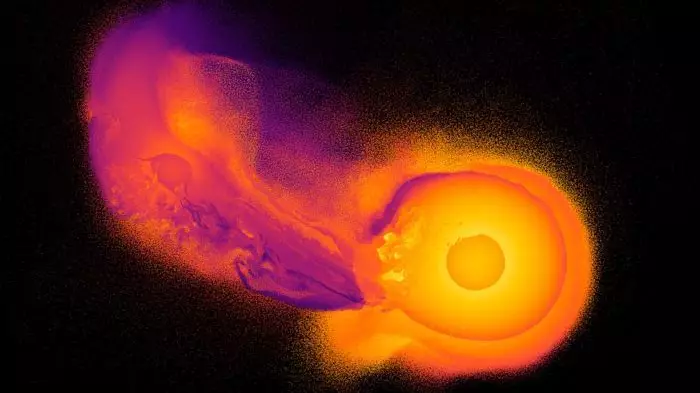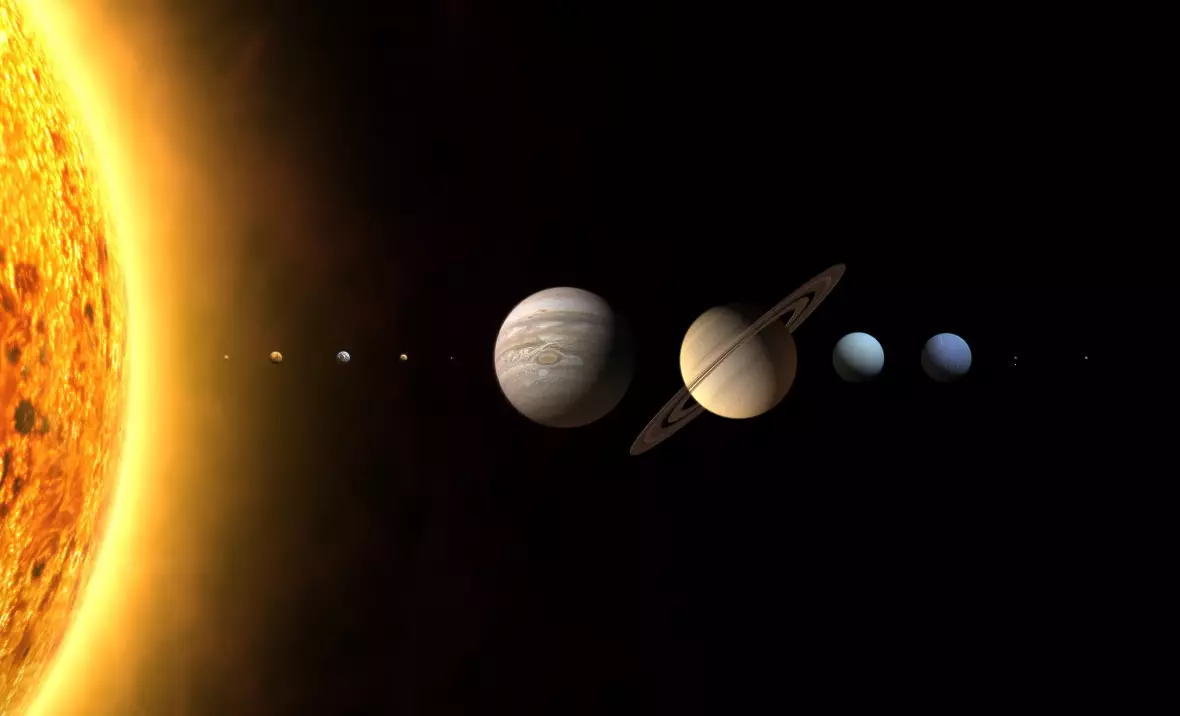
Uranus may well be the butt of all the jokes (GEDDIT!?!!), but thankfully there are still some people taking it seriously - as a bunch of scientists have taken the time to explore why it spins on its side.
I know, you were too busy giggling at the name to realise it's a bit wonky, weren't you? It's okay, I was as well.
Advert
In a paper called 'How Uranus Fell Over: Consequences of Giant Impacts with High Resolution Simulations', the researchers claim the planet had been pushed over by a rock at least twice as big as Earth.
"Uranus spins on its side. This was likely caused by a giant impact with another planet, which might also help explain other mysteries such as the planet's extremely cold exterior and strange magnetic field," the paper states, adding that the scientists ran simulations to 'study the consequences of this violent event in detail'.
Durham University astronomy researcher Jacob Kegerreis presented his analysis at a large earth and space science conference this month, ABC reports.
"Detailed computer simulations show that an enormous rock crashed into the seventh planet from the sun," Kegerreis said.
Advert
The collision is believed to have happened 3 to 4 billion years ago, before the larger moons of Uranus had formed.
Instead, Kegerreis said a disc of material eventually came together to form the moons, at which point Uranus' unique tilt acted like a gravity tidal force - in turn pushing the five large moons onto the same tilt.
Kegerreis explained that this would have also created the icy shell that Uranus is known for, keeping the planet's inner heat locked in.

"Uranus is unique in the solar system. The massive planet tilts about 90 degrees on its side, as do its five largest moons. Its magnetic field is also lopsided and doesn't go out the poles like ours does," said NASA chief scientist Jim Green.
Advert
"It also is the only planet that doesn't have its interior heat escape from the core. It has rings like Saturn, albeit faint ones."
Green also said no one else laughs when he says 'Uranus', adding: "They have to mispronounce it to get the chuckles."
Well, I'm glad it's not just us who find the planet's name amusing.
Featured Image Credit: Durham UniversityTopics: Science, World News, News, space